
Explore the top rated Menomonie drug rehabs with confidence. We've analyzed each of the 25 addiction treatment centers in Menomonie, WI for patient reviews, clinical credentials, transparency, and brand reputation to identify the best rehab programs.
Filter by inpatient, outpatient, detox, health insurance, specialty program and more to quickly find the best drug and alcohol rehab in Menomonie.Our Methodology
Rehab Score
Our Rehab Score is designed to make it easier for you to find the best treatment centers. We combine overall ratings with recent feedback to create a score that reflects a center's quality right now.
.
Insurance details are not available for this location.
| Name / Address / Rating | Description | Treatments / Programs / Payment Options | Review / Contact | Images | |
|---|---|---|---|---|---|
Menomonie, WI | Arbor Place is in Menomonie, Wisconsin. They offer drug rehab services for men and women who are suffering from alcoholism or any drug addiction. I was pleased to see that they offer a wide range of care, including residential care, day treatment, and outpatient care. You can find a lot here to meet your specific needs. Let’s start with thei | Treatments Programs Payment Options | Awesome place. Great staff and met new friends. My councilman paul Nelson was very good professional. Thank you all.
Joe
7 months ago
Jeff was amazing. All the people here care about you and want to help you. I have nothing but the upmost respect.
Jason Borchert
8 months ago
Arbor Place will always have a special place in my heart. In 2014, I attended treatment at the old Arbor Place—the big house on the corner. It was my last treatment episode. Since then, I’ve been able to maintain long-term sobriety and live a beautiful life in recovery.
My journey has come full circle. I served as a board member for three years before joining the team as an employee. Our treatment facility is truly a beautiful space for healing. You’re treated with dignity and care, in an environment that doesn’t feel clinical or cold. It’s not a hospital or an office building—it’s a complete neighborhood designed for recovery.
If you’re scared, I get it—I was too. But Arbor Place helped me find hope when I didn’t think it was possible. You don’t have to do this alone.
Now, being part of building the new treatment unit is incredibly personal for me. I’ve lived the journey, and I know the difference Arbor Place can make.
Loree Coulthard
10 months ago
| 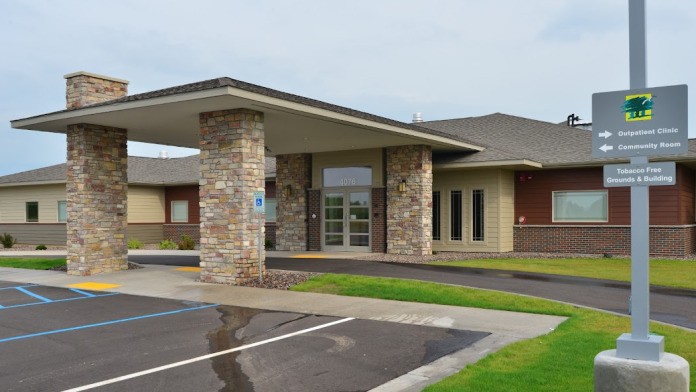
| |
Menomonie, WI | Soft Landing Transition Services – Soft Landing House, located in Menomonie, Wisconsin is a non-profit alcohol and drug rehab that offers treatment for a variety of substance abuse addictions including co-occurring mental health disorders. They offer residential care providing long term support for addiction recovery. Additional levels of care of | Treatments Programs Payment Options | The review from KS appears to violate Google’s policies, as it involves harassment, defamation, and doxxing. Regardless of what occurred, posting personal information or encouraging targeted harassment is not permitted under Google’s guidelines. Please report the review to Google for removal and contact your local authorities if necessary.
If KS wishes to provide legitimate feedback, Google encourages users to rewrite their review as a factual “drawback” without personal attacks or identifying information.
Update: It looks like KS review is not showing up anymore. Happy Thanksgiving!
What are you thankful for?
I'm Alive N
2 months ago
Wonderful Staff
Jennifer Freid
3 months ago
Great organization that helps many people in many different ways.
Bruce Sundstrom
9 months ago
| 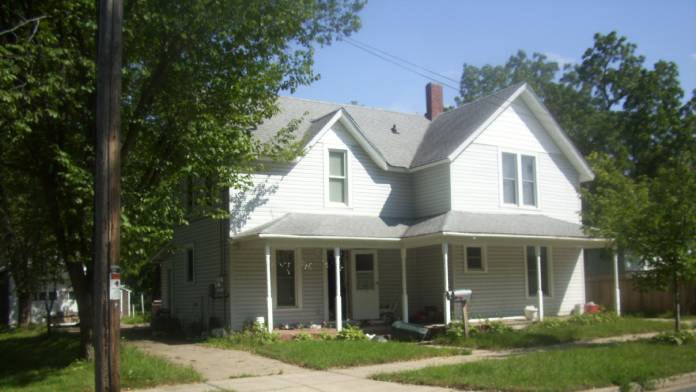
| |
Eau Claire, WI | Lutheran Social Services (LSS) - Fahrman Center is a residential treatment center offering addiction treatment for adult men and women. Lutheran Social Services (LSS) - Fahrman Center is located in Eau Claire, Wisconsin. Their counselors help patients improve their lives by using evidence-based practices including cognitive-behavioral therapy, mot | Treatments Programs Payment Options | I myself went there and my experience there was the best time to be honest with you before I went there I didn't know much about recovery and when I was done and I got to come home I know alot more and the staff that was there were really great and if I had a question about something I could talk to them and they got me a answer really fast if I had to go back to one I hope it would be there again
Mike Manuel
11 months ago
Inquiring about visiting hours and rules??? Please and thank you
J Preston
11 months ago
Great staff
Dino Townsend
1 year ago
| 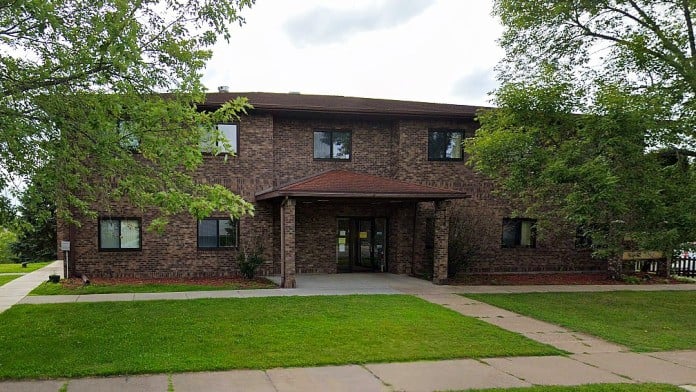
| |
Sandstone Care NapervilleAd This is an ad and Sandstone Care Naperville is a paid advertiser. Paid advertisers may be listed first in search results. This ad may contain content provided by the advertiser. Rehab.com does not verify ad content or any reviews that are displayed. Learn More Darien, IL | At Sandstone Care Naperville, we help teens, young adults, and their families overcome challenges with drugs, alcohol, mental health issues, trauma, and addiction in Illinois. At our Drug and Alcohol Rehab Center, we focus on not only helping individuals overcome substance use, addiction, and co-occurring mental health conditions but also on provid | Treatments Programs Payment Options | View Website (888) 491-9937 | Sandstone Care Naperville has no reviews yet. Leave a review.
| 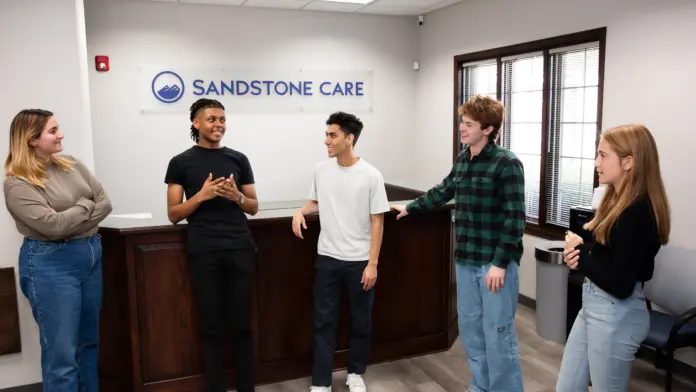
|
Eau Claire, WI | Mayo Clinic Health System is located in Eau Claire, Wisconsin. They look to offer innovative, effective, evidence based psychiatry, psychology and addiction treatment services for those in need. They provide inpatient and outpatient services for clients in need. They have board certified psychiatrists, licensed psychologists and counselors as well | Treatments Programs Payment Options | 8 years ago, this was my last resort for a healthcare system. Since then, it has completely transformed and has shown itself to be, in my opinion and experience, the gold standard for healthcare.
As a transgender person with chronic pain in a city full of religious hospitals, it can be difficult to find a doctor that takes me seriously. Not at Mayo. I recently had an ER visit turn into a 3 day inpatient stay due to possibility for complications, and I have never received better healthcare in my entire life.
The staff was knowledgeable, compassionate, with excellent bedside manner, and even more than that they actually listened to my concerns and took them seriously. My pain was managed thoroughly, I didn't have to settle for suffering alone in a room. The doctors asked all the right questions, they gave me every test they could think of to find the root cause of my visit and ensure my safety. The nurses made sure I was comfortable, wanted for nothing, and went above and beyond to make sure I would be alright.
I want to give a special shout out to Stephanie on the second floor. Stephanie, you are the best nurse I have ever had. Thank you so much for everything you did for me, and for the comfort you provided to me during a terrifying and agonizing ordeal. I hope you - and all the nurses I was lucky enough to be under the care of - get the daisy awards you so thoroughly deserve. I'll never forget you.
My experience at this hospital has revived my faith in the healthcare system. Thank you. A thousand times, thank you.
Ollie W
1 month ago
Staff are understanding, encouraging, and helpful in navigating through multiple needs of care I've needed to through.
Winnifred Blackwell
2 months ago
Excellent medical facility with high-quality professionals. I’ve been treated here on a number of occasions for a variety of different issues, as well as my family members. I recently had surgery here and the whole process has been very smooth, I’ve been told what to expect, and the staff have even been fun to chat with.
Allison Klemp
2 months ago
| 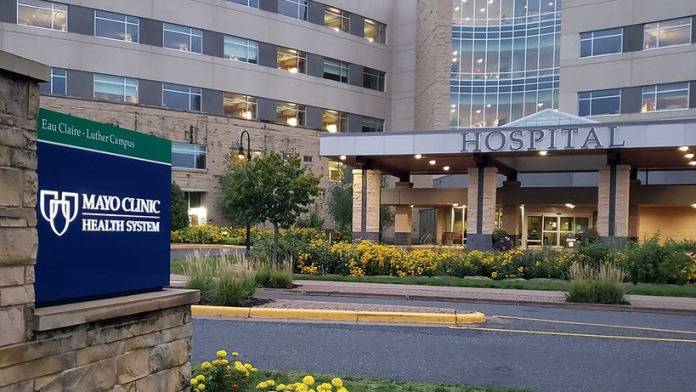
5 5 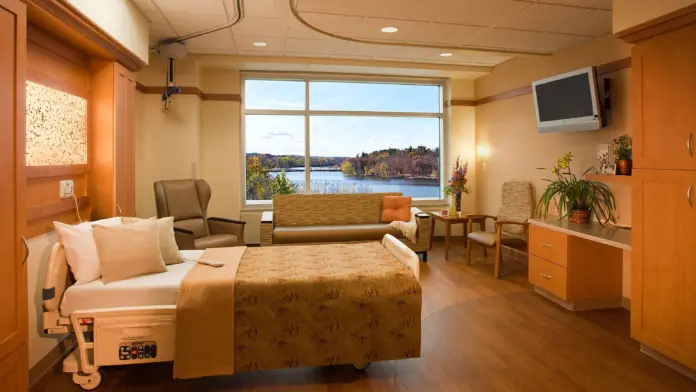
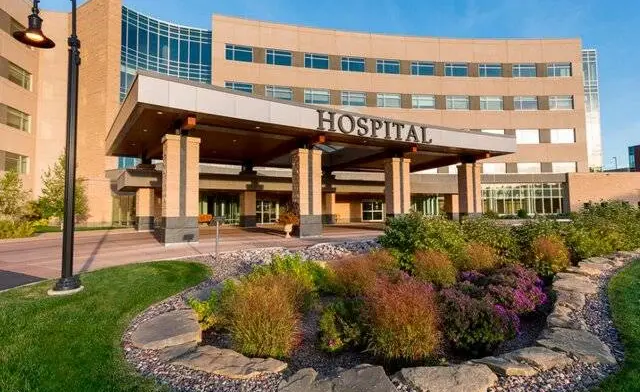

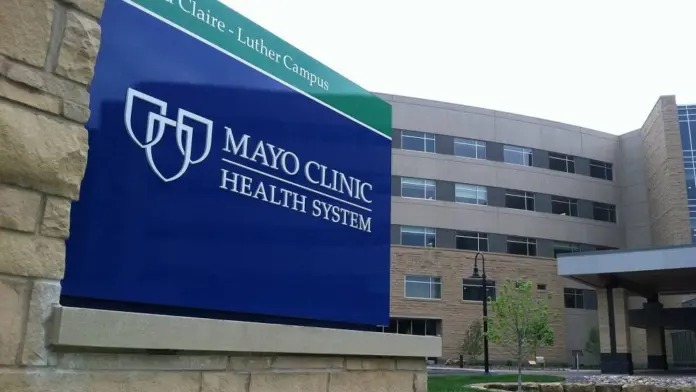
| |
Eau Claire, WI | Children’s Service Society – Eau Claire in Eau Claire, Wisconsin, is an organization that provides mental health and addiction support for children and teens. You can find help here for a variety of concerns including substance use. They offer programs that directly address vape addiction and other substance use struggles that young peo | Treatments Programs Payment Options | The sweetest people ever
Natalie James
4 years ago
Great staff.
Tina
5 years ago
Never have had a bad experience here.
Daryl Morning
7 years ago
| 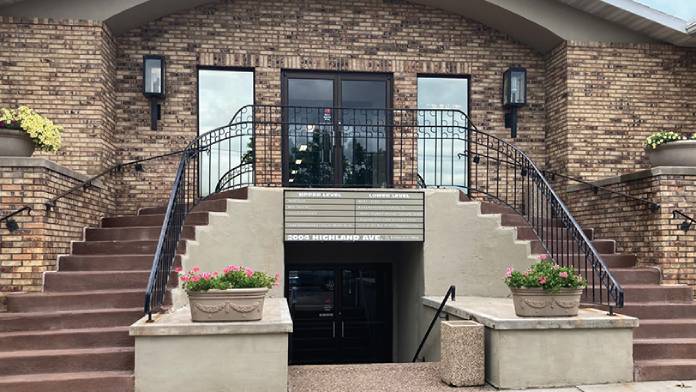
| |
Eau Claire, WI | The majority of past clients agree that Eau Claire Comprehensive Treatment Center delivers quality outpatient treatment for opioid use disorders. Their clinical team is described as compassionate, friendly and supportive without compromising professionalism. The key takeaway is that they actually care. This facility is a life saver for adults affec | Treatments Programs Payment Options | It has come to my attention that people have been bashing on the staff at ECTC especially the nurses and I like to say that some of the things that are being said are wrong and very hurt full stop bashing the nurses and take responsibility for your own recovery the staff are doing there job to make sure that we stay safe!! I’ve had some issues with the staff but they were mostly brought on by my own pride but it has never felt like a personal attack against me these people are here to help this place is a treatment center and the staff are human and have feelings they should fell good about doing there job. How would it feel if they showed up at your job talking shit to you every morning I’m sure we wouldn’t like it either these women are not only on the front lines keeping us safe but they’re also women first so be a little respectful! Thank you good luck with your recovery
Derrick Domka
3 months ago
Easy transferring process and if you have insurance you're totally covered! Methadone clinic is a savior!
Salena Forsyth
3 months ago
Great staff, a literal life saver!
Stacey Brown
3 months ago
| ||
Top Wisconsin Cities | |||||
Eau Claire, WI | Lutheran Social Services (LSS) - Midway Crisis Program is a four bed community based residential facility for crisis stabilization. Call NorthWest Connections to assist in the referral process. This program serves adult men and women with mental health and/or AODA issues who are experiencing a crisis from any of life’s difficult circumstances, su | Treatments Programs Payment Options | Exelente
miguel roa
2 months ago
Staff was Very welcoming to visitors nice polite ppl
Garrett Kniep
3 months ago
| ||
Eau Claire, WI | Located in Eau Claire, Wisconsin, is a branch of Lutheran Social Services. They specialize in outpatient counseling for mental health and substance use disorders, and those with a dual diagnosis. They’re known to provide recovery-oriented counseling for people of all ages, regardless of religious beliefs, either in an office setting or within the | Treatments Programs Payment Options | Great place to help your loved ones get back on track! I have a loved one graduating from transition tomorrow and can't be more proud.
*IT WORKS IF YOU ARE WILLING TO WORK AT IT*
michele Lee
3 years ago
Helping my loved ones get back on track!!! GOD BLESS!!!
Linda Marko
7 years ago
| ||
Eau Claire, WI | St. Luke’s Hospital’s Sacred Heart Campus is located in Allentown, Pennsylvania, and provides primary care, psychiatric mental health support, dual diagnosis support, and substance abuse treatment for youths and adults. Their inpatient program is for clients with substance use disorders or mental health conditions. It provides a high level of c | Treatments Programs Payment Options | Thank you Sacred Heart you save my life when I had mold on my lungs Dr. Chuma gave me life and his staff. I am sorry to hear that this hospital is going down. Good luck and prayers to all.
Bradley L
1 year ago
Just want to thank nurse Maddie & Allie in ICU/critical care unit, on Jan 15,16,17, 2024 for taking good care of my son Christopher Boo. He was admitted on Jan 14th-20th in for a week. Got sick while visiting in town. I live in Tennessee. Those 2 Ladies call me letting me know his condition. I couldn't get there town snow in, airports shut down. I prayed for my son to breath again. God gave me 2 nurse with compassion, kindness, good heart. So Nurse Maddie & Allie, I greatly appreciate your kindness. Blessing to you 2 nurse for all your great services. Shirley (Mom) of Christopher. Sacred Heart Hospital, 900 W. Clairemont Ave, Eau Claire WI. Thanks for the great Staff !!! 5 Stars *****
scan toshirley
1 year ago
I absolutely love this place! This is my favorite hospital to go to. The staff is amazing & they showed me so much compassion & care. They helped me so much. I’m forever thankful .
J B
2 years ago
| 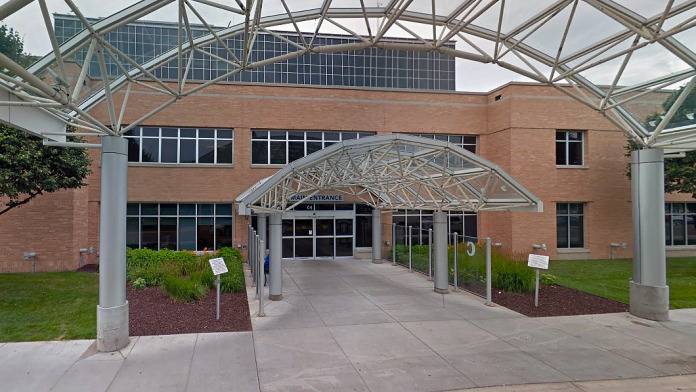
| |
Sandstone Care Treatment CenterAd This is an ad and Sandstone Care Treatment Center is a paid advertiser. Paid advertisers may be listed first in search results. This ad may contain content provided by the advertiser. Rehab.com does not verify ad content or any reviews that are displayed. Learn More Buffalo Grove, IL | Our Sandstone Care Treatment Center in Buffalo Grove, Illinois, helps teens, young adults, and their families overcome challenges with drugs, alcohol, mental health issues, trauma, and addiction. At our Drug and Alcohol Rehab Center, we focus on not only helping individuals overcome substance use, addiction, and co-occurring mental health condition | Treatments Programs Payment Options | View Website (888) 491-9937 | Sandstone Care Treatment Center has no reviews yet. Leave a review.
| 
|
Eau Claire, WI | LSS–Lutheran Social Services–Affinity House is a drug rehab for justice involved women in Eau Claire, Wisconsin. They provide residential programming, aftercare planning, and community reintegration support for women in addiction recovery who are transitioning from incarceration. Their primary treatment modalities include psychotherapy, recover | Treatments Programs Payment Options | Exelente
miguel roa
2 months ago
Staff was Very welcoming to visitors nice polite ppl
Garrett Kniep
3 months ago
I had the best experience here, I'll never forget this place. Believe me, this is a great place to start a new and comfortable life. Thanks to them I can enjoy my life in sobriety.
6 years ago
| ||
Eau Claire, WI | Clinic for Christian Counseling is a faith based counseling center in Eau Claire, Wisconsin, focused on healing the minds and worries of those ready to recover from substance use disorder. This center is known for treating adult men and women, teens, children and families. You might want to consider this center if you believe in faith based remedie | Treatments Programs Payment Options | Clinic for Christian Counseling has no reviews yet. Leave a review.
| ||
Eau Claire, WI | Vantage Point Clinic and Assessment Center specializes in providing thorough evaluations in Atlanta, Georgia, as well as customized treatment plans. They help adults and adolescents manage and overcome various behavioral health challenges. Their rates vary depending on your insurance coverage and if you’re eligible for community programs. Clinic | Treatments Programs Payment Options | Really professional and helpful
Sarah Herman
7 months ago
I've been with vantage point for a few years and it's helped me tremendously.
Sarah Annen-Stephan
10 months ago
The best around.Jeff Jackson simply the best.he really listens
Candius Pyun
1 year ago
| 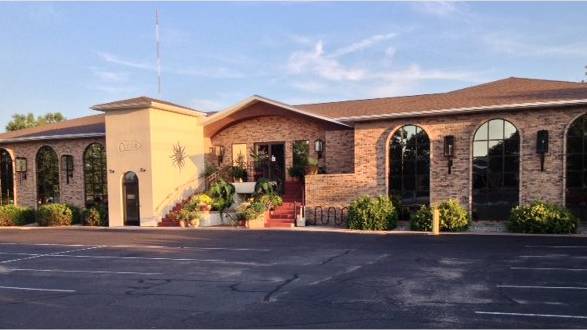
| |
Eau Claire, WI | Lutheran Social Services (LSS) - Women's Way provides comprehensive case management and counseling for women who are dealing with substance abuse issues. Lutheran Social Services (LSS) - Women's Way is located in Eau Claire, Wisconsin. Licensed substance abuse counselors/case managers assist women to gain a sustained and rewarding recovery and grea | Treatments Programs Payment Options | Great place to help your loved ones get back on track! I have a loved one graduating from transition tomorrow and can't be more proud.
*IT WORKS IF YOU ARE WILLING TO WORK AT IT*
michele Lee
3 years ago
Helping my loved ones get back on track!!! GOD BLESS!!!
Linda Marko
7 years ago
| ||
Eau Claire, WI | Marriage and Family Health Services (MFHS) located in Eau Claire, Wisconsin is a mental health clinic that provides outpatient services. Their services include individual, couple and family therapy. Some of the issues they treat include anxiety, depression and drug addiction. The team at MFHS is dedicated to caring for you with compassion so you | Treatments Programs Payment Options | Outstanding and professional therapist. I'm glad I found them.
3 years ago
My therapist's words of insight and compassion have helped me understand my life and my relationships more clearly. I always leave feeling better equipped to deal with the baggage of my past, circumstances as they are now, and my life going forward. She gives me a sense of hope, knowing I am not alone.
Fern Brown
3 years ago
The ladies at the desk are always helpful and friendly. I see Jane here, and she’s been wonderful. She is moving mountains for me in a short amount of time. I would strongly recommend her.
Ali Orozco
4 years ago
| 
| |
Altoona, WI | First Things First Counseling and Consulting, located in Altoona, Wisconsin is a private alcohol and drug rehab that offers treatment for a variety of substance abuse addictions including co-occurring mental health disorders. They offer flexible outpatient addiction therapy allowing patients to live at home while receiving regular treatment. Speci | Treatments Programs Payment Options | The place is fantastic, the people are friendly and help you with your recovery. They want to be there for you at all times, and they are proud of all the achievements you can achieve! They seek the best for you at all times.
6 years ago
| ||
(LSS) Lutheran Social Services of SDAd This is an ad and (LSS) Lutheran Social Services of SD is a paid advertiser. Paid advertisers may be listed first in search results. This ad may contain content provided by the advertiser. Rehab.com does not verify ad content or any reviews that are displayed. Learn More Sioux Falls, SD | Counseling Resources in Sioux Falls, South Dakota, is in the southeast region of the state and the southwest corner of Sioux Falls. They’ve been serving residents for over 100 years. They’re located near Saratoga Park and the Butterfly House and Aquarium, offering several areas to explore between therapy sessions. Mental Health and Substance Us | Treatments Programs Payment Options | View Website (605) 444-7500 | (LSS) Lutheran Social Services of SD has no reviews yet. Leave a review.
| |
Eau Claire, WI | Eau Claire Academy located in Eau Claire, Wisconsin is a day school that helps students strengthen their academic and social skills through individualized instruction. It’s a part of the wider corporation, Clinicare, which provides residential programs for mental illness, addictions and intellectual disabilities. Eau Claire Academy first opened | Treatments Programs Payment Options | Clinicare – Eau Claire Academy has no reviews yet. Leave a review.
| 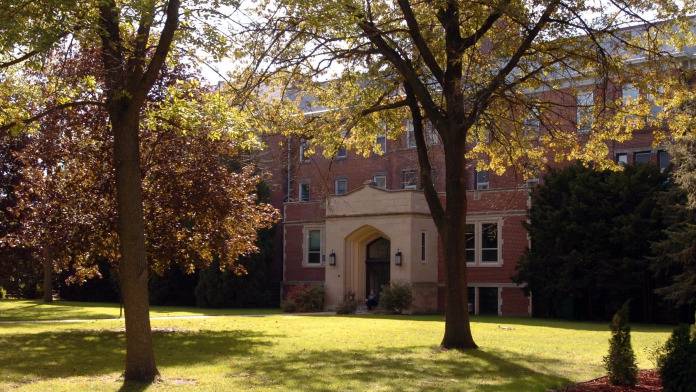
| |
Eau Claire, WI | Al Anon, located in Eau Claire, Wisconsin is a non-profit alcohol and drug rehab that offers treatment for a variety of substance abuse addictions including alcoholism. At Al Anon additional levels of care offered include 12-step therapy. Specialty rehab programs at Al Anon include tailored care focusing on women's specific needs and experiences a | Treatments Programs | Al Anon has no reviews yet. Leave a review.
| ||
Hudson, WI | Burkwood Treatment Center offers quality and individualized treatment for adults affected by substance use disorders. They also address co-occurring disorders. This is when someone is struggling with both substance misuse and mental issues. This residential facility is located in picturesque Hudson, Wisconsin, close to Minneapolis and St. Paul. Res | Treatments Programs Payment Options | So my experience here was an amazing life changing moment, that is leading the way for me to be successful in my Recovery. From every single RA to the kitchen staff, and everyone else that works there. My counselor was Jon, he was funny, blunt, caring and very smart. Im grateful to have met him. Cheryl and Kelly may seem like tough cookies, but they are god sent human beings that want nothing but the best for each and everyone of you. I see the hate in the comments..... The program is simple, follow the rules, learn, participate, and dont waste a bed for people that really want this!. I highly recommend this place to everyone. Im blessed i got the chance. Thank you to every single person at Burkwood. Love yall
Sincerely-- Anthony Dentz
Drew Yayo
4 months ago
Burkwood is an amazing place. Their staff truly care and are so rich of information to share about addiction, recovery, and real life. They’re are meant for their jobs. I’ve learned so much while I was there. I valued the daily book we filled out on our own, fully engaging and eye opening. I was lucky to have Pete as my counselor. His approach was thorough and helpful. My only complaint is that it was crowded there and access to phones, bathrooms, and laundry was a bit tricky but maybe that will change at some point. Thank you Burkwood!
Erin Klisch
5 months ago
My time at Burkwood was amazing, to say the least. The staff were great and it truly is up to you if you want this place to help you! Take what you can from it and be grateful. Reading some of these horrible reviews is crazy to me! It’s not a vacation - for a treatment center it’s pretty damn nice! The classes do get a little monotonous, but for the most part were engaging and helpful. My counselor Derek was the absolute best and the RAs Diane, William, Kristin, Aidan and Ashley were genuine and helpful. They are heavily rooted in AA which I thought I would hate at first, but if you’re just open-minded and listen to what speaks to you it’s not too shabby. They helped me set up IOP and sober living after and I’m enjoying the beginning of my sober life thus far. Thank you Burkwood ❤️
Madeline Nicko
6 months ago
| 
6 6 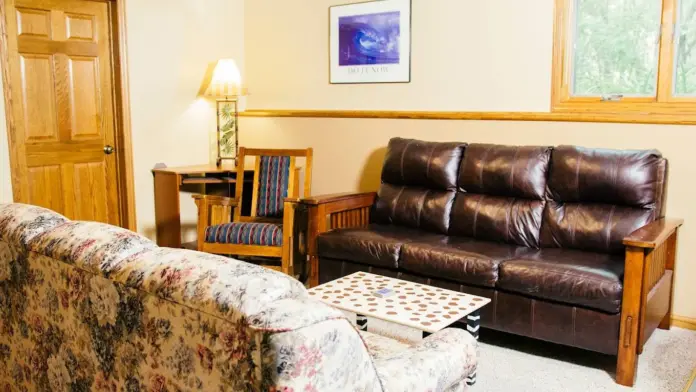



| |
Hudson, WI | Lutheran Social Services (LSS) - Exodus House is a Christian-based recovery residence for adults, located in Hudson, Wisconsin. Services at Exodus House also include mental health treatment, case management, and community referrals. Addiction-related services offered at LSS – Exodus House include mental health assessments and counseling, peer | Treatments Programs Payment Options | Love these people.
Cassandra Sieracki
2 months ago
I just left a review for the Fresh Pantry and I think I was supposed to leave the review here as well. Please check the Fresh Pantry review. The kind red-haired lady really made my day and I'm so grateful. The detailed review is on the other Google page for Fresh Pantry if you Google search it. Very kind people at these establishments.
Snow Ryder
5 months ago
I really appreciate this place and grateful I personally just don't care for their new food pantry the staff are rude and not the best for a big family since the options are limited to 1 item even when with multiple kids with you!
Andrianna Olds
5 months ago
| ||
Hastings, MN | Cochran Recovery Services is a non-profit and cost-effective organization that provides comprehensive behavioral health services in a secure and stable environment. Cochran Recovery Services include residential detoxification, residential program, dual diagnosis program and a sober living program. As part of their holistic approach CRS created a W | Treatments Programs Payment Options | i was a recent client, mixed feelings about my stay. The staff are relatable and actually care. This program knows how to hire a great staff, In my time there I've gained insight on a level beyond what i thought possible. Give them a chance, better yet, give yourself a chance. They believe in you.
Bernard Lockhart
1 year ago
I'm currently in the program living @ one of the spirit houses it's a great Faith based program. The staff and owner really help you.
Ronn Mahr. 111
2 years ago
Great place and great environment with great people highly suggested !
Miguel Cuate
2 years ago
| 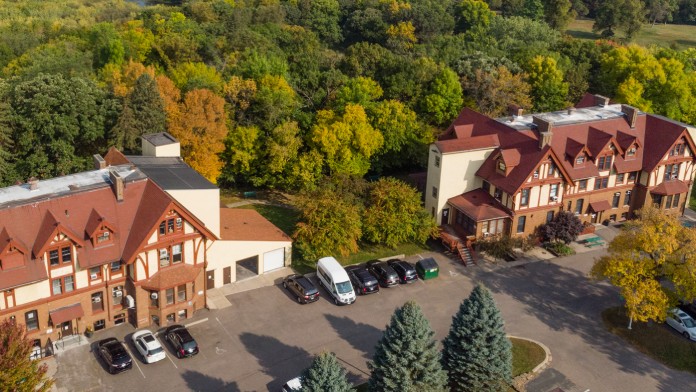
| |
Rice Lake, WI | Mayo Clinic Health System in Rice Lake, Wisconsin is an outpatient facility that provides behavioral health services. The treatment options at this location include psychiatric treatment and talk therapy. They can also refer clients who need intensive substance use disorder treatment services to the Eau Claire location. Proven Medication To Treat M | Treatments Programs Payment Options | Listened as an irate rather hostile elderly man vented to Kim at the front desk. She was warm, patient and kind to him. Called another location, explained his concerns and kept him informed of her progress. She was able to solve his problem. He was happy and told her a "Dad" joke on his way out. Impressive customer service. 👏
G Seemann
2 months ago
Great new facility and people have been here for over a year, yet you still run into problems on Google finding them due to the attached businesses on the side of it. Highly recommend place to establish care.
Eudaimonia Arete
8 months ago
Professional experience
Tim K
3 years ago
| 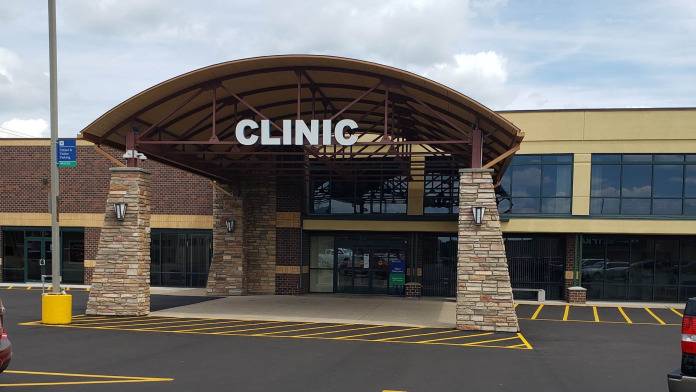
2 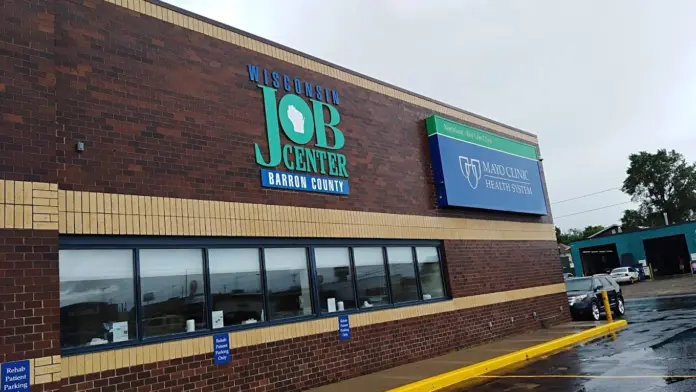
| |
Sandstone Care NapervilleAd This is an ad and Sandstone Care Naperville is a paid advertiser. Paid advertisers may be listed first in search results. This ad may contain content provided by the advertiser. Rehab.com does not verify ad content or any reviews that are displayed. Learn More Darien, IL | At Sandstone Care Naperville, we help teens, young adults, and their families overcome challenges with drugs, alcohol, mental health issues, trauma, and addiction in Illinois. At our Drug and Alcohol Rehab Center, we focus on not only helping individuals overcome substance use, addiction, and co-occurring mental health conditions but also on provid | Treatments Programs Payment Options | View Website (888) 491-9937 | Sandstone Care Naperville has no reviews yet. Leave a review.
| 
|
Hastings, MN | Located in Hastings, Minnesota, Faith Family Recovery Center is a drug and alcohol misuse treatment center that offers drug rehab services to individuals in need. They are also a dual diagnosis center, which means they treat mental health disorders as well. These co-occurring conditions can range from depression to bipolar disorder and can make the | Treatments Programs Payment Options | I'm currently in the program living @ one of the spirit houses it's a great Faith based program. The staff and owner really help you.
Ronn Mahr. 111
2 years ago
Great place and great environment with great people highly suggested !
Miguel Cuate
2 years ago
No longer a slave to addiction from the help of faith family!! Thank god for this program!!🙏🙏
Dallas Thompson
2 years ago
| 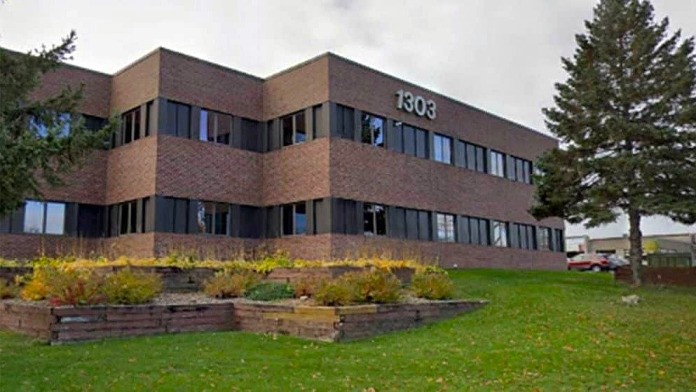
3 

| |
Chippewa Falls, WI | Minneapolis VA Health Care System – Chippewa Valley CBOC, also known as Chippewa Valley VA Clinic, is an outpatient facility in Chippewa Falls, Wisconsin. They offer primary care as well as mental and behavioral health services including addiction treatment. Support is available to military personnel and veterans and their families. This cent | Treatments Programs Payment Options | I've been with the Chippewa Falls VA Clinic since 2010, and I have nothing but good things to say about the service that I've received.
Allen S Hodder
11 months ago
Whenever I go there it's always good service and great staff.
ジエベルウェスリー
2 years ago
Good place to get your primary care done but if you need any kind of urgent treatment go to Prevea Instacare in Altoona or the ED. All they will do is send you there anyway if you can wait for an appointment i high recommend them.
K lake
2 years ago
| 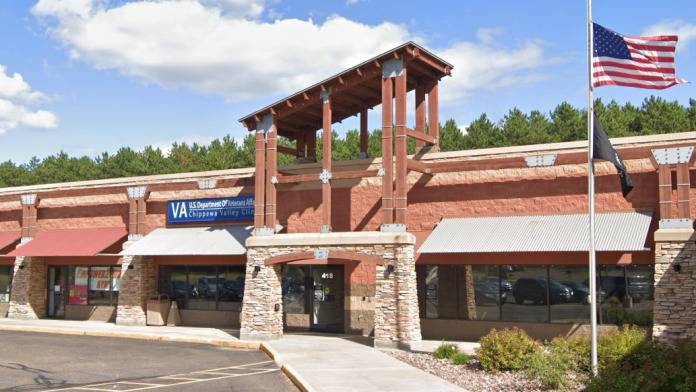
| |
Scandia, MN | Haven Chemical Health Systems – Rebecca’s Residence, located in Scandia, Minnesota is a private alcohol and drug rehab that offers treatment for a variety of substance abuse addictions including alcoholism and opiate addiction. They offer supervised medical treatment to safely manage withdrawal symptoms during detoxification, as well as residen | Treatments Programs Payment Options | I want to extend my heartfelt thanks to The Haven in Shakopee for playing a meaningful role in my recovery journey. From the moment I arrived, I was met with compassion, understanding, and unwavering support. The staff created a safe, structured, and welcoming environment that allowed me to grow, reflect, and heal at my own pace.
Thank you to the entire team at Shakopee for your dedication and the positive impact you’ve made in my life. Your work is deeply appreciated.
Tony Panyasiri
Tony Panyasiri
7 months ago
Omg Mr Groth is such a nice guy to talk with. Highly recommend this place to ANYONE
Carmelo Garcia
10 months ago
I didn't know if this program was for me but it was worth trying and so far it's working I'm building confidence and relationships with great people in recovery the staff is amazing they are all extremely kind and helpful this is just the beginning of the rest of my life one that will finally be lived without being chained up in my addiction thank you to everyone who has and is and will be apart of this program helping other's
Mike M
1 year ago
| ||
River Falls, WI | Kinnic Falls Alcohol & Drug Abuse Services, located in River Falls, Wisconsin is a non-profit alcohol and drug rehab that offers treatment for a variety of substance abuse addictions including alcoholism and co-occurring mental health disorders. They offer residential care providing long term support for addiction recovery. Additional levels of car | Treatments Programs Payment Options | DISREGARD my last review, I honestly was in the wrong & still active, I returned to this place for a reason. Good fellowship and the staff all really care, had a good stay.
Quinten Wicklund
3 months ago
I came to Kinnic directly from Burkwood treatment center. I was told that you have enough freedom here to lasso the world or to hang yourself. Now being at Kinnic in a twon with alot of bars, a college, and liquor being sold at gas stations, immediately I seen what they meant. But if your here to better your life, set yourself uo for success, and taki g your recovery seriously, this is the place to to so. The Tech's who are mostly ex clients are amazing, wonderful, and just the right people for the job. Going beyond that to where people come in to speak, set you up for a job, and share endless knowledge of recovery is a daily thing. The counselors here are loving, caring people who truly want the best for you. I had Matt, and I made a friend for life. He stepped uo when I really needed someone, not just on a professional level, but a human being. He showed me love, and understanding and did not leave my side until he felt I was ok, that included staying after work and getting me ice cream and pizza. Im not the type to get close to people in this world, but coming up on my last day I feel sadness, and there will be part of me that will have a hole in it. How do I replace a place like this, I cant, but I can remain in recovery and the AA community. So if your questioning whether or not to come here.... DO IT!!!!!! Thank you to each and everyone of you at Kinnnic Falls! Love yall, love Tony D.
Drew Yayo
4 months ago
I really appreciate all the kindness and patience of these kind and caring people they went above and beyond to help me get my life together and help me come to terms with my personal issues they are simply awesome and I feel blessed to have gone there.
john rupert
1 year ago
| 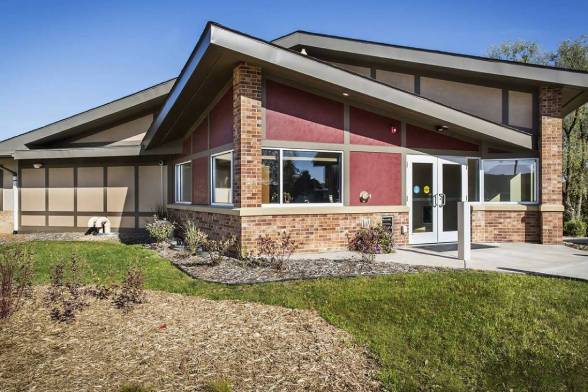
5 5 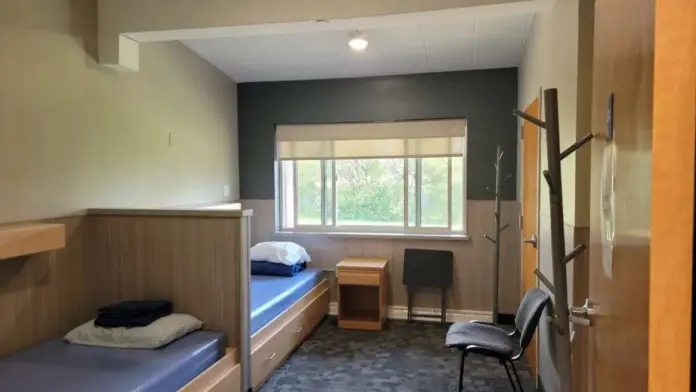
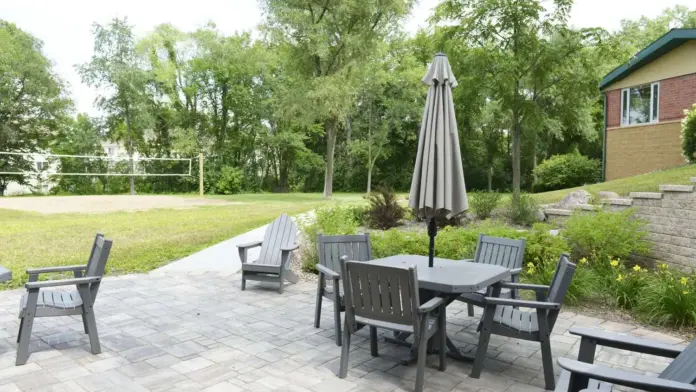
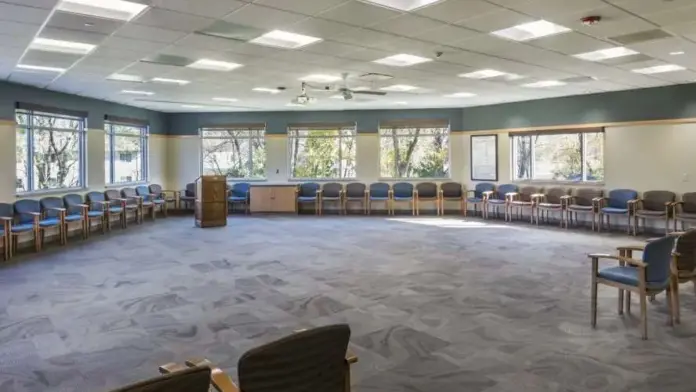
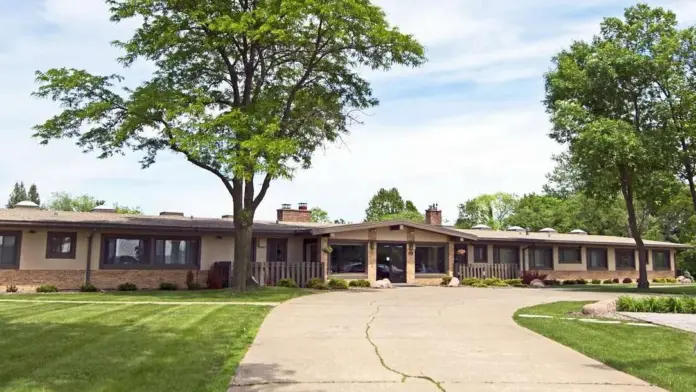
|

Wisconsin is ranked 19th nationwide in terms of addiction treatment affordability, with an average cost of addiction treatment of $56,625.
The costs of drug and alcohol rehab in Wisconsin vary widely and depend on several factors, including:
The costs of addiction treatment listed for cities and states are averages based on the cost of the treatment types listed above. These averages are high due to the cost of medical detoxification and residential inpatient rehab programs.
These numbers also reflect the raw cost of drug rehab, before any insurance coverage. The typical individual seeking addiction treatment can expect to pay much less for outpatient or intensive outpatient services than the averages listed below.
There are many ways to pay for drug rehab in Wisconsin. Most treatment centers accept cash or self-payment, as well as private health insurance. However, there are many treatment centers in Wisconsin that accept Medicaid and Medicare, or offer sliding scale payments or other low-cost payment options. Here’s the complete breakdown of how to pay for addiction treatment in Wisconsin.
UnitedHealth Group is the most widely-accepted insurance for drug rehabs in Wisconsin, with 119 treatment centers in the state accepting their insurance. Aetna is the 2nd most popular with 115 treatment centers accepting it followed by Humana in 3rd accepted by 102 drug rehabs.
Wisconsin is ranked 30th nationwide in drug rehab admissions, with 342 rehab admissions per 100,000 population in 2023, which is lower than than the U.S. national average of 621 admissions per 100,000.
The following are the number of Wisconsin rehab admissions in 2023 for each of the 6 most frequently used drug classes, as well as the relative percent for each type of drug.
Source: Substance Abuse and Mental Health Services Administration. National survey of substance abuse treatment services (N-SSATS).
Wisconsin is ranked 29th nationwide in terms of annual drug overdoses, with an average of 27.0 overdoses per 100,000 population and a total of 1,599 overdoses in 2023. Opioid abuse accounted for 78% of all drug overdoses in Wisconsin, with a total of 1,250 opioid overdoses in 2024.
Centers for Disease Control and Prevention. Provisional drug overdose death counts. U.S. Department of Health and Human Services.
Wisconsin is ranked 19th for drug and narcotics-related violations, with an estimated 519 narcotics citations per 100,000 population which is higher than the National Average of 421.
All values are per 100,000 population.
Federal Bureau of Investigation. Crime data explorer: Crime trends. U.S. Department of Justice.
Wisconsin has the 10th highest rate of drunk driving in the nation, with a total of 335 DUI arrests per 100,000 people in 2023 (and 19,791 total DUI arrests).
All values are per 100,000 population.
SafeHome.org. DUI statistics and trends.